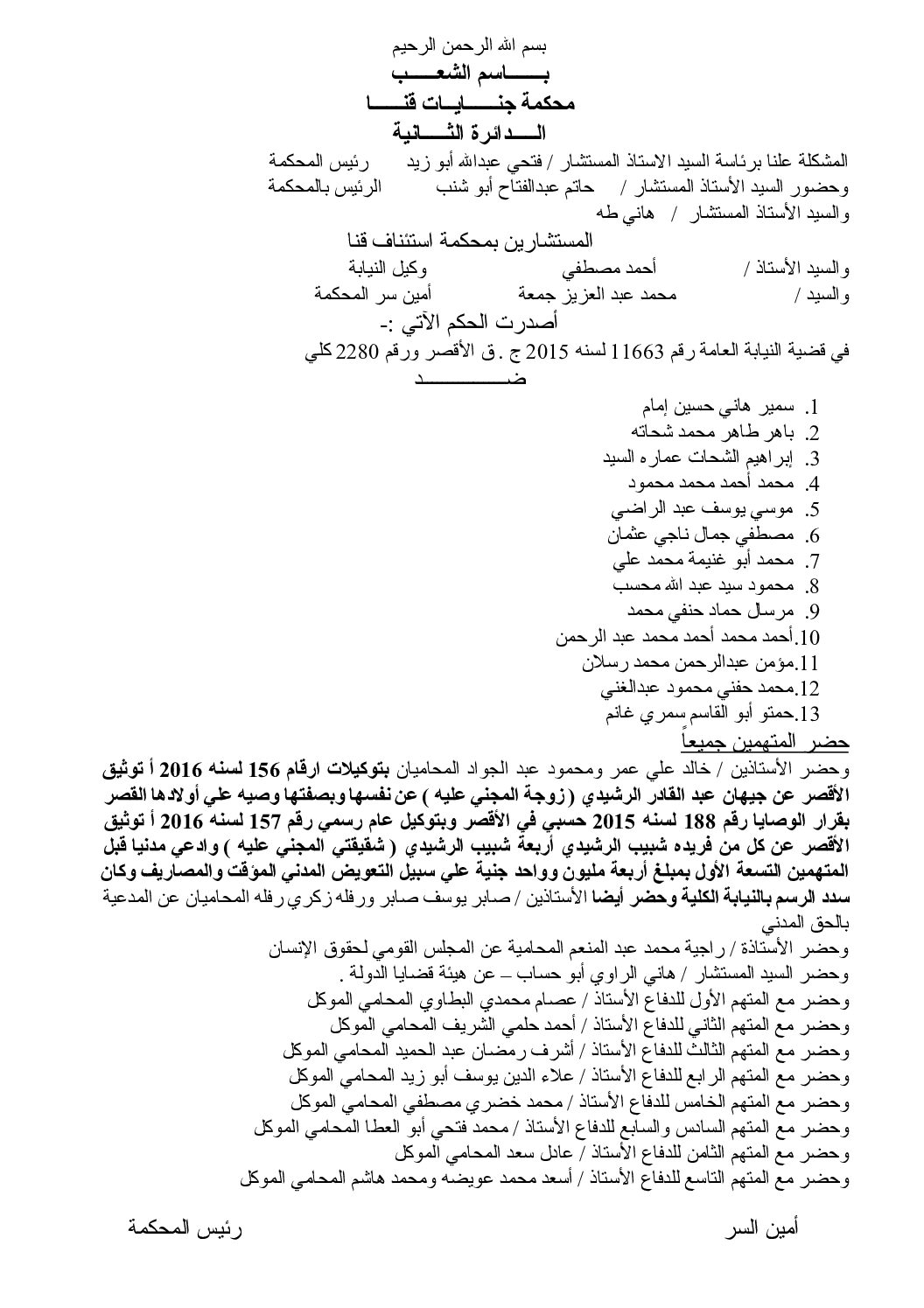Work Rights | ECESR Calls for Application of Minimum Wage on Basic Salaries Including Private Sector
The decision by the Council of Ministers, in its meeting held on Wednesday, September 18, 2013, raising the minimum wage in the government sector to 1,200 Egyptian pounds (US $175) starting January 2014, is a positive indicator of the impact of the workers movement, supported by many civil society actors, political parties, revolutionary movements, and other groups in the past years.
The movement had been demanding the for the adoption of a minimum national wage as one of the pillars of achieving social justice, and went through different struggles before the January 2011 Revolution.
In April 2011, legal efforts were rewarded by virtue of a historic Administrative Court decision in April 2010, which committed the Egyptian government to setting a minimum wage linked to prices and stimulating the role of the National Wage Council.
While all actors who struggled to lift the injustice against Egyptian workers should be commended on the results achieved, it should be clear that this move falls short of achieving the desired results and is still full loopholes, which threaten its proper implementation. It also implies the continuation of evasive policies and the avoidance of confronting chronic problems in the wage system, as practiced by successive Egyptian governments for years.
Some disadvantages of the council of ministers decision could be summarized, thus:
1) The resolution stipulates the application of a minimum on the average monthly overall wage of no less than LE1,200, at a time when the variable wages of public sector workers make up more than 83% of the total wages in the sector.
This has led to a state of disorder and lack of transparency concerning the components of the wage of each worker. The decision ignores this chaos and adds to it, causing injustice to the rights of workers and employees with seniority, whose wages it does not improve>
The raise to be received by some will not be reflected in their social security or their pensions funds. Instead, the minimum wage should be set on the basic salary and not the overall wage, taking into account reforming the wage structure where the basic salary should be less than 80% of the overall wage.
2) The decision only applies to the government sector, despite promises by from the Prime Minister that the adoption of the minimum wage this time would be through a law that encompasses the government, public, and private sectors. It should represent an acknowledgement of the right of every worker in Egypt to an income, which provides a decent living.
It should be noted that 70% of workers are employed in the private sector (around 18 million workers) and 30% are in the government and public sectors. Therefore, the only alternative is that the minimum wage decision covers all workers in Egypt, being a social right. It should also be organized through a binding law for the private sector, in addition to the government and public sectors.
3) The decision stipulates a minimum wage, but fails to mention the maximum wage in the government sector, while ministers of the economic groups are giving contradictory statements about ways to finance the minimum wage. However, failure to set the maximum wage limit, which would provide this financing or a major part thereof, raises several concerns.
One of the concerns is that the deduction of the needed financing would be from Treasury accounts for basic services such as health and education. This would mean that the government would, in fact, be taking with its left hand, what it had given with its right hand.
In addition to the need for a maximum wage to fund the minimum wage increase, the adoption of this limit by no more than 15 times the minimum wage is essential to achieve a fair distribution of income between workers in the government sector, who receive their salaries from the people’s money.
The previous observations are concerned with a decision by the Council of Ministers to set a minimum wage for the government sector. They do not address reforms that need to be incorporated into the wage regime in Egypt, which suffers from chronic imbalance, whose manifestations have accumulated due to several bad policies that are biased towards the business community and the administration throughout throughout the past decades.
While the adoption of a minimum wage remains an important milestone on the road to reforming this regime, it should not be the only step. It should be pointed out that vacillation and trembling hands still impede the current government’s attempts at decisions necessary for reform. Yet the risk is not limited to the situation remaining the same, with what entails of the persistence of social injustice suffered by the majority of this country’s poor.
However, the historic moment which Egypt is passing through three years into the revolution, where two presidents were toppled, should force the government to improve its performance to the required level. This includes taking drastic actions to achieve concrete results, in the shortest possible time, which impact the lives of millions of citizens whose patience is about to run out.

